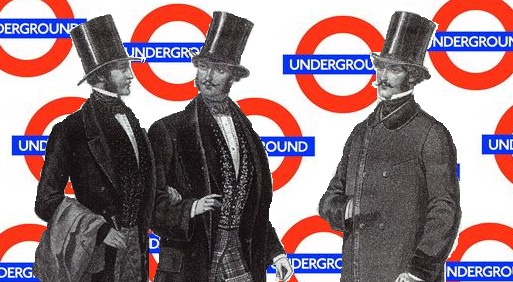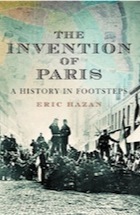I lead off this chilly morning with a hat tip to the good folks at Culturethèque for their flâneur-London-tube post, “The Flâneur Still Lives!“, which hit the interwebs last Sunday. More flâneurial paean than anything else, Mélissa’s short tribute leads off with this 0h-so-excellent mashup borrowed above.
Bravo! I shamelessly covet Mélissa’s graphic. (Until I discover otherwise, I’ll credit her for this homemade remix of popular iconography. And I’ll inevitably awaken at 4:00am with my own derivative collage. I’ll be unable to sleep until I jot a few notes, doodle a sketch, liberate the idea from my sleepless mind…)
The character emerged from the concrete of 19th Paris… a lazy yet intelligent person who strolls around… a particular personality who loves their city. That’s right, not a striking form of patriotism, just a genuine love of their city. Baudelaire… take it away: “To see the world, to be at the centre of the world, and yet to remain hidden from the world – impartial natures which the tongue can but clumsily define.” (Culturethèque)
Despite the obligatory Baudelaire citation and a nod to Benjamin, there’s little enduring here except the jolly image. Or, perhaps I judge too hastily. Meandering a city via public transportation offers endless fodder for a flâneur. While I’m drawn less to the conductor’s announcements and more to the diverse parade of humanity swimming around and past me, I too savor public transportation. Somehow staring is more acceptable on a subway or a bus, especially if you allow your eyes to glaze, unfocused. This is a skill mastered early on in a commuter’s maturation. And it serves the flâneur well.
So, Mélissa, thank you for the troglodytic immersion and the flâneurial London tube image above. I hope you’ll excuse my carrying your idea forward. Soon…
Related articles
- Schopenhauer’s Flâneur (virtualdavis.com)
- Borderer’s Flaneur (virtualdavis.com)







